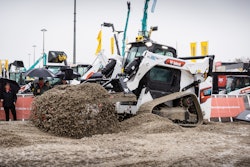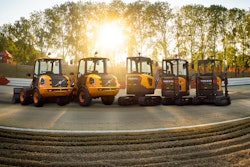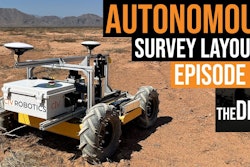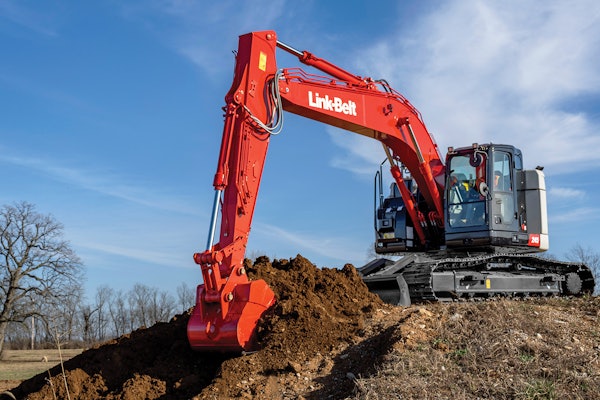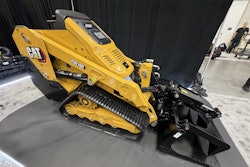
Dodge Construction Network recently unveiled Dodge Construction Central 2.0, an upgrade to its data platform.
“The building process has remained largely unchanged for 15 or 20 years. However, in that time, the world has changed and innovated around the industry,” said Dan McCarthy, president, and CEO of Dodge Construction Network. “Construction and building are making dramatic strides in both technology and processes, but the industry must move more quickly. We’re on the cusp of a new era of construction; one reliant upon digital transformation and close collaboration. Dodge Construction Central 2.0 is a catalyst for empowering and accelerating this change for everyone in the AEC industry, big and small.”
Dodge has two different platforms. One is the data platform, which has evolved into Dodge Construction Central 2.0, and the other is the network platform. which is a listing where the members can connect with other members.
“What 2.0 does for us as a technology, as a platform, it's going to become the platform that we are going to use to drive all of our customer functionality into,” he said. The new product integrates the critical construction industry content within Dodge Data & Analytics, The Blue Book Network, IMS, and Sweets into one platform and interface.
Featuring an intuitive, customizable user interface, DCC 2.0 provides a new way to access and leverage data using increased business intelligence capabilities.
“Too often the modern user doesn't want to have to talk to somebody to get to what they want,” McCarthy said. Within DCC 2.0, users have access to a dashboard personalized and unique to their needs, bringing the most important and relevant data and information directly to them, instead of searching and guessing at what they may need. Users can:
- Access accurate and timely intelligence, eliminating the guesswork in construction
- Find and work with the project and company data that is most relevant to their business
- Connect with other commercial construction professionals and businesses, developing a network of preferred partners
- Gather insight into ongoing projects, plans, specifications and addenda to support a bidding process
- Promote their brand to bidding projects to improve their chances
“What we've done with the plumbing work that we did in relaunching our platform with DCC 2.0 is we've gotten in and upgraded our data architecture,” he said, noting that the application was redesigned to allow customers to access information quickly and speed up customization.
Within DCC 2.0, users can now send invitations to bid directly within the platform to others in the network. Users can also view bid invitations they have received wherever and whenever.
For example, a contractor wants to know what jobs are available within a radius so they can move their equipment effectively. DCC 2.0 has information on what jobs are coming up for bid in the next six months, what general contractors are overseeing the jobs, and when the bids open.
"With DCC, I can get a view of all those jobs that are coming up for bid that are going to need my services and that allow me to put my capital to work with the heavy equipment that I have," McCarthy said.
In addition, project forecasts for areas are included within the platform to help contractors make investment decisions over time.
Simplifying the construction process
“Risk is a high driver of choices in construction,” McCarthy says. “If you think about the construction lifecycle from early on in a project to completion, at each point, each party is trying to mitigate their risk.”
Depending on what stage you are playing in the construction lifecycle or how you are thinking about using all the information and data that you get access to, it can be hard to figure out how to deploy it effectively.
McCarthy notes that if people are uncomfortable with the risk they’re assuming, they’ll be slower to act. Within the industry, one area this continues to show through is digital transformation. However, McCarthy asserts that digital transformation is happening faster than most people give credit.
“Many of the processes facilitated by new digital infrastructures are not limited to the construction industry,” he said.
Most small to mid-sized businesses are using Google, smartphones and moving documents around digitally. “They’re all playing around with digital resources,” McCarthy said. “If you think about it in terms of digital adoption rather than digital transformation, digital adoption is at a very high level in construction.”
He pointed out that digital transformation often refers to when people are trying to change workflows and work processes. However, he contends that Dodge Construction Network doesn’t want to change a company’s workflow. "I want to give you access to better information that lets you make decisions easier and faster," he said. "I want to be part of a decision-making matrix that creates more success for you as my customer."
For most contractors, heavy equipment is a capital commitment. A determination needs to be made whether to purchase or rent, how much equipment is required and what the cost will be.
“These are existential decisions for these guys,” McCarthy said. “They'll cause a tremendous amount of anxiety because even in mid-sized companies, that capital outlay is going to change how they think about the world.”
Within DCC 2.0, he said, everything is fueled by data about projects and participants within commercial construction. Dodge Construction Network's definition of commercial construction covers everything except single-family residential.
McCarthy said data within the network is relevant to any commercial construction contractor. The intent is for the network to access the data and find projects in the earliest possible stages.
For example, if a newspaper reference found about a new commercial development that's being planned for mixed healthcare use, then Dodge’s research team will start digging into everything it can find about the project, such as the owner, the developer, the size, the contractor, etc.
“Once that project is in our system, we're updating it each step of its development,” McCarthy said. Everything from when an architect or engineer is named to the project plans and specs.
"We're tracking 600,000 projects a year, and for about 240,000 of those, we'll have complete plans and specs," he said. "Our data capture goes all the way to the point of the project starting."
On the network side, Dodge collects and updates research on 1.2 million construction professionals.
“If you need to find someone or you need to find a firm, we've got the most comprehensive and accurate database,” McCarthy said. “The search directory helps you find firms that you want to do work with.”
The evolution to DCC 2.0 revolved around connecting all the data within Dodge Construction Network’s system.
"If you're using our data and you're a contractor and you're trying to answer simple questions about how you can be more successful, how you can get more jobs, that's what we exist to do, and that's what we are endeavoring to make easier for you with DCC 2.0," he said.



